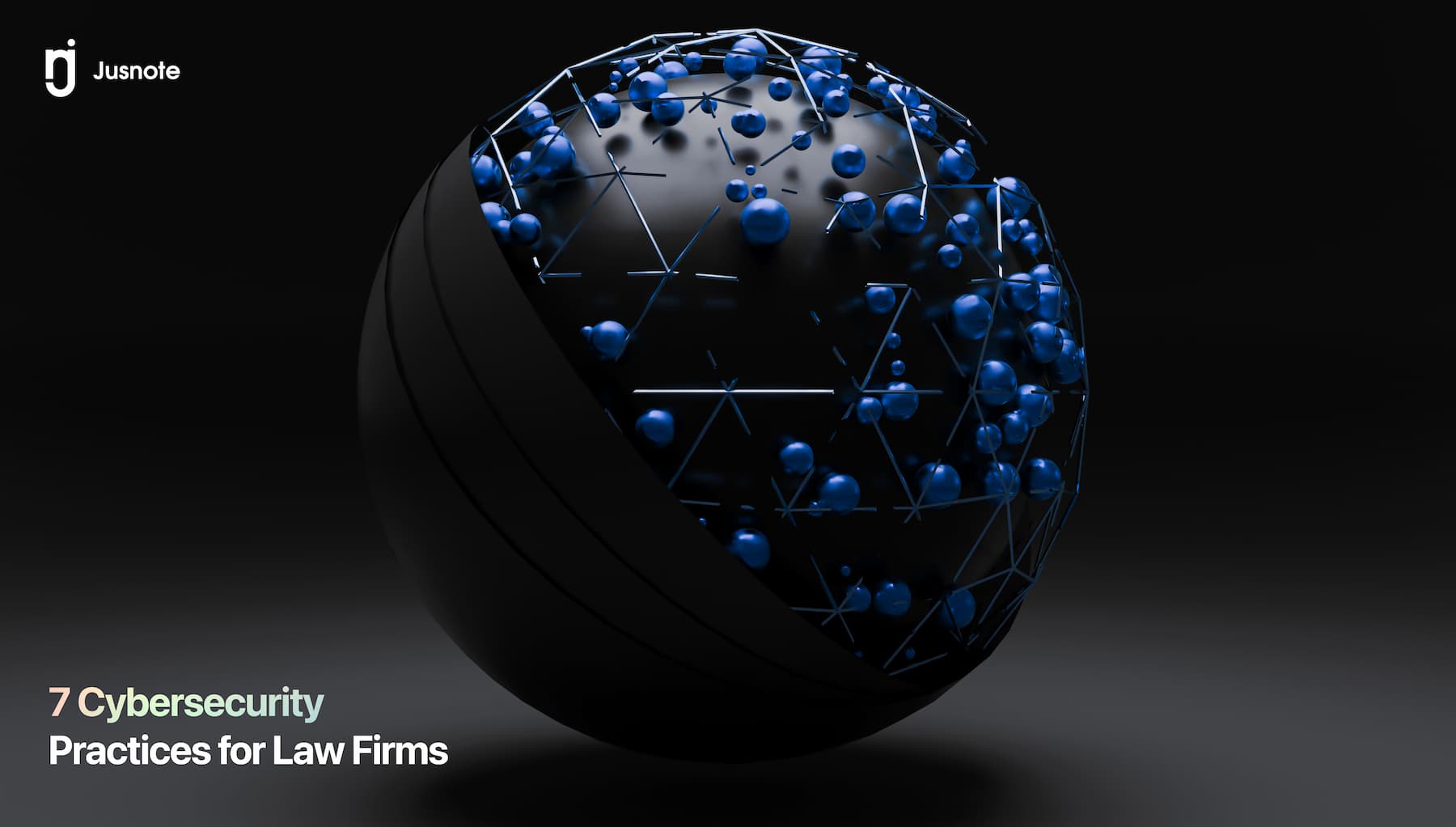BLOG
August 30, 2022
7 Cybersecurity Practices for Law Firms
Let’s look at some of the best practices to protect your law firm against cyber criminals and ensure client data security.
 Search Newsroom
Search Newsroom
Let’s look at some of the best practices to protect your law firm against cyber criminals and ensure client data security.
Law firms are at high risk of being a lucrative target for cyber hackers because of the large amount of sensitive data that is stored digitally. According to the American Bar Association (ABA) 2021 Legal Technology Survey, 25% of respondents reported their law firm had been breached.
Small law firms or established ones are particularly prone to cyberattacks since they might not have strong cybersecurity defenses yet. Typically, they spend less on technology than larger legal organizations.
Let’s look at some of the best practices to protect your law firm against cyber criminals and ensure client data security.
If you’re a law firm owner or run your solo legal practice, find an IT or security specialist to regularly assess the possible cyber threats to your internal systems. You can also engage an outside security vendor who will be providing scanning and monitoring services to investigate suspicious activity on your technology systems or any vulnerabilities that may result in data breaches.
You should comply with GDPR rules on password policy to ensure comprehensive legal data protection and reduce the possibility of unauthorized access to sensitive information. Weak passwords let malicious actors easily compromise your accounts. Follow these password policy recommendations for more robust data security:
• The longer the password, the better.
According to experts, the minimum password length should be 8 characters, but creating a password of at least 12 or even 16 to 20 characters is now recommended. Experts advise paying more attention to the length than complexity since lengthy passwords are harder to decrypt.
• Don’t use dictionary words.
No matter how complicated these words are, dictionary words are deemed insecure and an easy target for hackers to decrypt. Cybercriminals can use a special script to decipher these words or their combinations and get access to the account. Ideally, a strong password should consist of letters, numbers, and special characters and doesn’t contain personal information.
• Consider using phrases as a password.
Using a passphrase with unrelated words automatically makes your password longer, making it much harder to crack.
Just creating a strong password is not enough for thorough law firm security. Since passwords can be easily hacked, merely filling in credentials such as username and email address into the system doesn’t guarantee that these users are who they claim they are. Adding additional authentication ensures that users who try to login into the system are authorized. Another verification factor, besides a password and username, helps confirm a person’s identity. However, this factor should be unique to that person, so others can’t guess it.
In case of server failure, hacking attacks, or ransomware, you should have a robust backup plan to recover your data. By routinely performing your data backups and saving data offline or in the cloud, you get all your data back from the last restore.
The frequency of backup procedures depends on your law firm’s size and how much data is stored in your systems.
Security training allows lawyers, paralegals, and other legal specialists to navigate the situation if a data privacy risk occurs. So they will know how to act on that issue in the best possible way to mitigate data breach risks. Besides, it would help if you had technical guidelines and regularly provided training sessions by a security specialist, such as on an annual or quarterly basis, combining theory and practice.
Legal specialists’ training courses on data privacy should address key security topics such as HIPAA rules in connection with computer-based interactive practical sessions.
Lawyers often use email to communicate with clients and share sensitive data since it is fast and convenient. But, at the same time, emails can be an easy target for malicious actors. As a lawyer, you should be responsible for keeping client email content and attachments private and take all necessary measures to secure the email communication channel.
Encryption can help. Email encryption directs the user to the plain text that is automatically converted into cipher text. Only the person who has a private key can read the decoded email text. The email content becomes unreadable for everybody except you and the recipient, namely those who intend to access the email. If a hacker tries to interpret your messages or hack login credentials, they won’t be able to do it even if they somehow gain access to the email message.
By investing in the right legal management software to run your practice, you guarantee security to both your clients and staff.
Jusnote is the comprehensive cloud-based legal practice management software that allows for securely managing all legal tasks in one place, such as:
• keeping legal cases on track using centralized storage
• billing clients and tracking time spent on client matters
• cooperating with team members and sharing files
• creating in-depth professional reporting with precise metrics
• communicating with clients through a secure portal
Contact the Jusnote team to discuss how we can help you grow your legal business.
Author, Content Creator at Jusnote
 Jusnote Newsroom
Jusnote Newsroom 